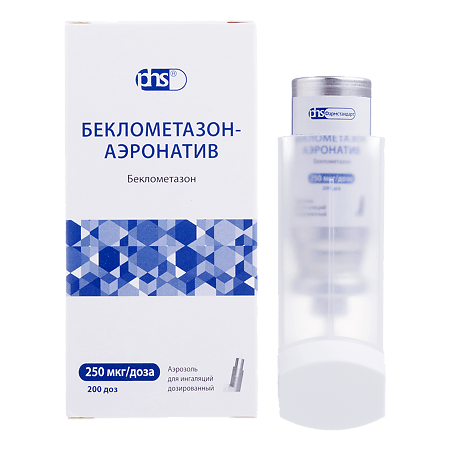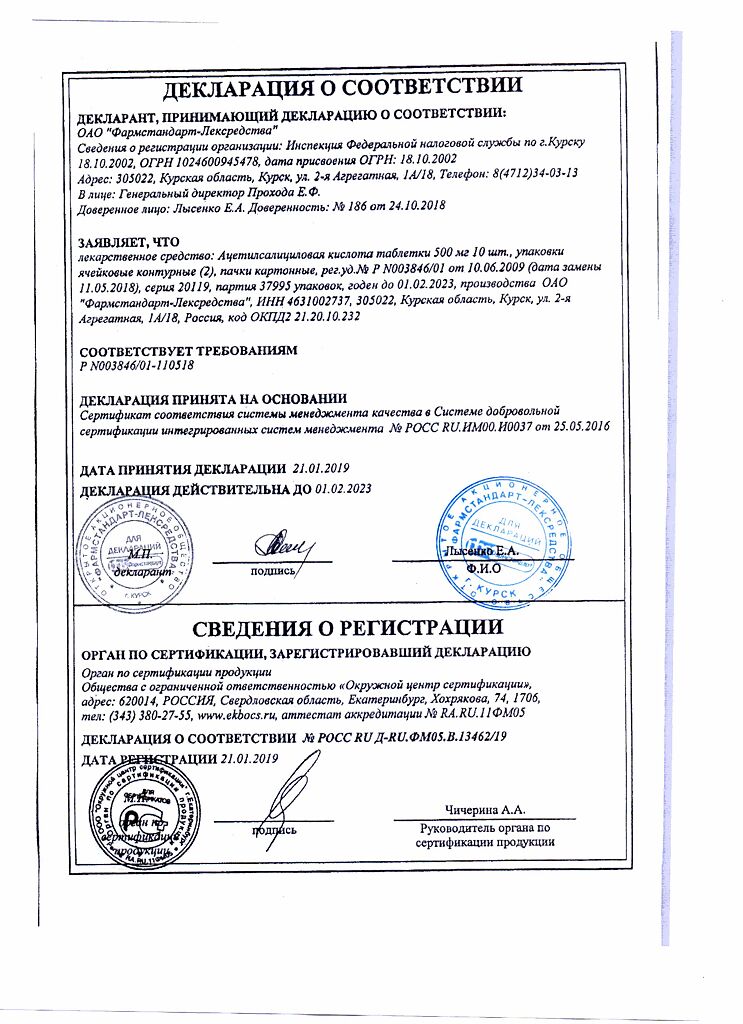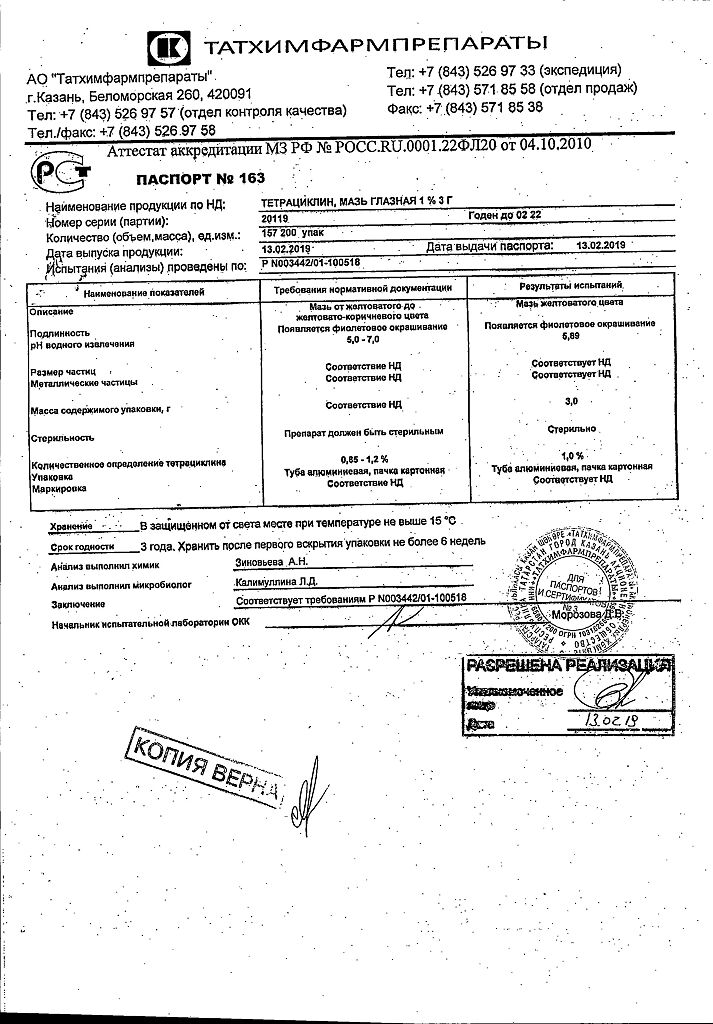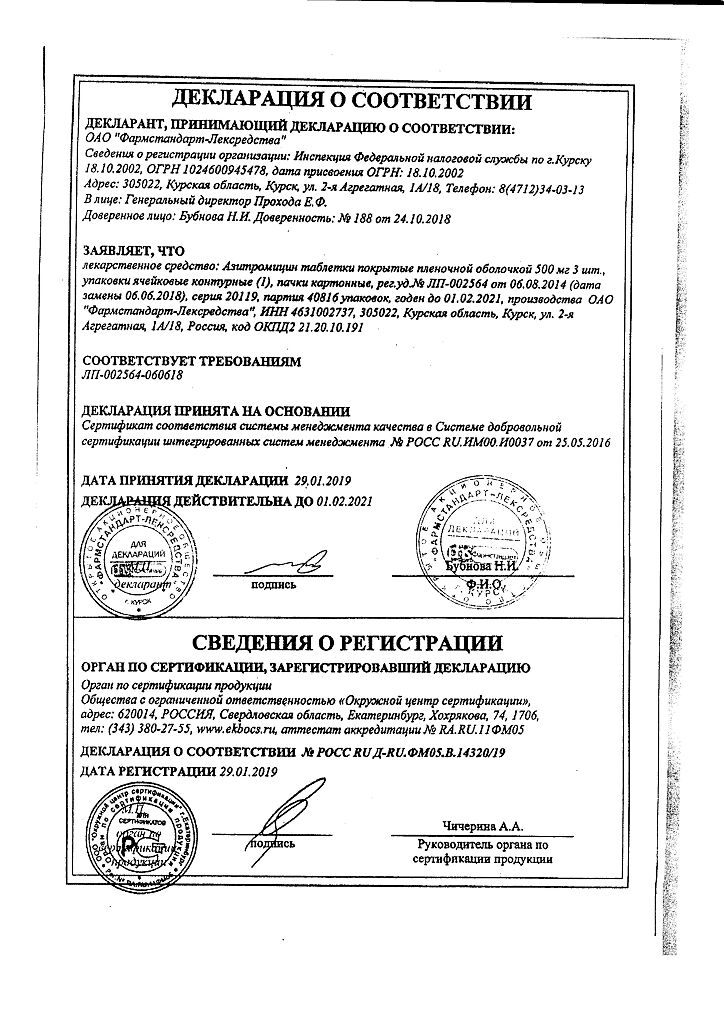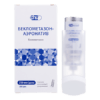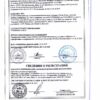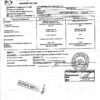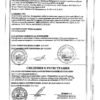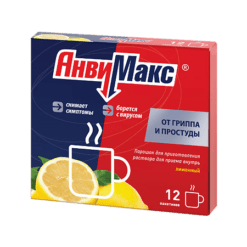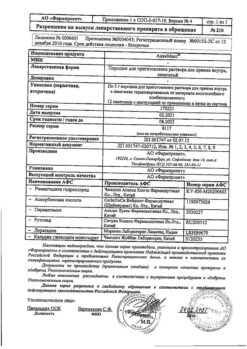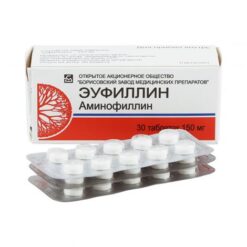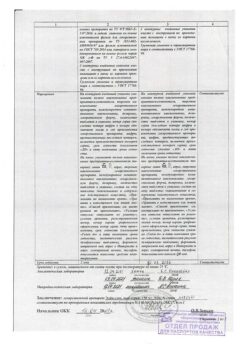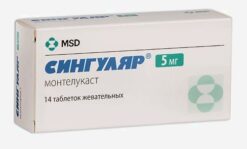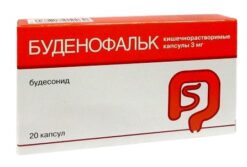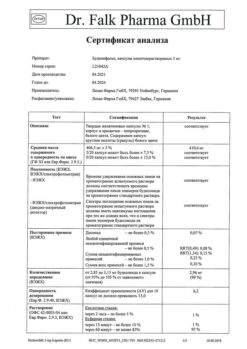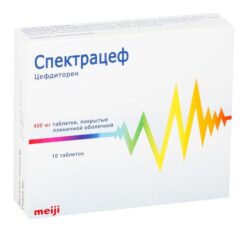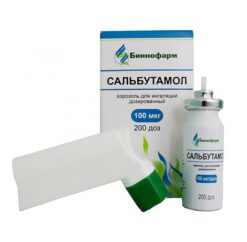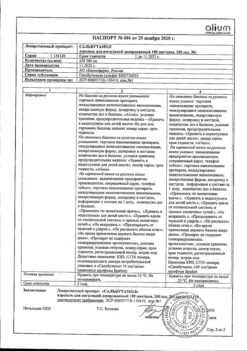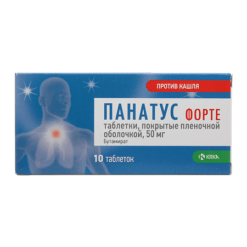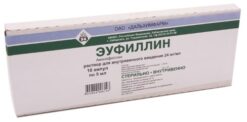No products in the cart.
Beclomethasone-Aeronativ, aerosol 250 mcg/dose 200 doses
€11.64 €10.18
Description
GCS for inhaled use. Beclomethasone in dipropionate form is a prodrug and has poor tropicity to glucocorticoid receptors. Under the action of esterases it is converted into the active metabolite – beclomethasone-17-monopropionate, which has a pronounced local anti-inflammatory effect by reducing the formation of chemotaxis substance (effect on delayed-type allergic reactions).
By inhibiting the production of arachidonic acid metabolites and reducing the release of inflammatory mediators from mast cells, it inhibits the development of immediate-type allergic reactions.
It improves mucociliary transport, decreases the number of mast cells in the bronchial mucosa, reduces epithelial edema, mucus secretion by bronchial glands, bronchial hyperresponsiveness, edge accumulation of neutrophils, inflammatory exudate and lymphokine production, inhibits macrophage migration, reduces the intensity of infiltration and granulation.
After inhalation administration it has practically no resorptive effect. It does not stop bronchospasm. The therapeutic effect develops gradually, usually after 5-7 days of course use.
Enhances the number of active β-adrenoreceptors, neutralizes their desensitization, restores the patient’s response to bronchodilators, allowing a reduction in the frequency of their use.
Indications
Indications
For inhalation use: treatment of bronchial asthma (including those with insufficient effectiveness of bronchodilators and/or sodium cromoglycate, as well as severe hormone-dependent bronchial asthma in adults and children).
Pharmacological effect
Pharmacological effect
GCS for inhalation use. Beclomethasone in the form of dipropionate is a prodrug and has weak affinity for glucocorticoid receptors. Under the influence of esterases, it turns into an active metabolite – beclomethasone-17-monopropionate, which has a pronounced local anti-inflammatory effect by reducing the formation of a chemotaxis substance (impact on delayed-type allergic reactions).
By suppressing the production of arachidonic acid metabolites and reducing the release of inflammatory mediators from mast cells, it inhibits the development of an immediate allergic reaction.
Improves mucociliary transport, reduces the number of mast cells in the bronchial mucosa, reduces swelling of the epithelium, mucus secretion by bronchial glands, bronchial hyperreactivity, marginal accumulation of neutrophils, inflammatory exudate and the production of lymphokines, inhibits the migration of macrophages, reduces the intensity of infiltration and granulation processes.
After inhalation administration it has virtually no resorptive effect. Does not relieve bronchospasm. The therapeutic effect develops gradually, usually after 5-7 days of course use.
Increases the number of active β-adrenergic receptors, neutralizes their desensitization, restores the patient’s response to bronchodilators, allowing them to be used less often.
Special instructions
Special instructions
Beclomethasone is not intended for the relief of acute asthmatic attacks. It should also not be used for severe asthma attacks requiring intensive care. The recommended route of administration for the dosage form used should be strictly followed.
Beclomethasone should be used with extreme caution and under close medical supervision in patients with adrenal insufficiency.
The transfer of patients who constantly take GCS orally to inhaled forms can be done only if their condition is stable.
If there is a possibility of developing paradoxical bronchospasm, bronchodilators (for example, salbutamol) are inhaled 10-15 minutes before the administration of beclomethasone.
With the development of candidiasis of the oral cavity and upper respiratory tract, local antifungal therapy is indicated without stopping treatment with beclomethasone. Infectious and inflammatory diseases of the nasal cavity and paranasal sinuses, if appropriate therapy is prescribed, are not a contraindication for treatment with beclomethasone.
Preparations for inhalation containing 250 mcg of beclomethasone in 1 dose are not intended for children under 12 years of age.
Active ingredient
Active ingredient
Beclomethasone
Composition
Composition
1 dose contains beclomethasone 250 mcg.
Pregnancy
Pregnancy
During pregnancy and breastfeeding, Beclomethasone aeronative can be prescribed only if the expected benefit to the mother outweighs any possible risk to the fetus or child.
Contraindications
Contraindications
Age up to 4 years.
Hypersensitivity to any component of the drug.
Beclomethasone aeronative should be used with caution in case of glaucoma, systemic infections (bacterial, viral, fungal, parasitic), osteoporosis, pulmonary tuberculosis, liver cirrhosis, hypothyroidism, pregnancy, and lactation.
Side Effects
Side Effects
Infections: very often – candidiasis of the mouth and pharynx. Using a spacer and rinsing your mouth and throat with water after inhalation reduces the likelihood of these side effects.
From the immune system: rarely – skin hypersensitivity reactions, including rash, urticaria, itching, redness and swelling of the eyes, face, lips and mucous membranes of the mouth and pharynx; very rarely – angioedema, anaphylactic reactions.
On the part of the endocrine system: very rarely – systemic effects (suppression of adrenal cortex function, ocular retention in children and adolescents, cataracts and glaucoma)
From the respiratory system: often – dysphonia (hoarseness of voice) or irritation of the pharyngeal mucosa; very rarely – paradoxical bronchospasm, which must be immediately relieved with an inhaled short-acting beta2-adrenergic agonist. If paradoxical bronchospasm occurs, it is necessary to immediately stop inhalation use, assess the patient’s condition, conduct the necessary examination and prescribe the necessary treatment.
From the skin and subcutaneous fat: often – bruising, thinning of the skin.
Interaction
Interaction
Beta-agonists – beclomethasone enhances the effect of beta-agonists. Beclomethasone restores the patient’s response to beta-agonists, making it possible to reduce the frequency of their use.
Inducers of microsomal oxidation (including phenobarbital, phenytoin, rifampicin) – may reduce the effectiveness of beclomethasone.
Methandienone, estrogens, beta2-adrenergic agonists, theophylline, systemic corticosteroids – enhance the effects of beclomethasone.
Overdose
Overdose
An acute overdose of the drug can lead to a temporary decrease in the function of the adrenal cortex, which does not require emergency treatment, since the function of the adrenal cortex is restored within a few days, as confirmed by the level of cortisol in the plasma.
In case of chronic overdose, persistent suppression of the function of the adrenal cortex may be observed.
In such cases, it is recommended to monitor the reserve function of the adrenal cortex. In case of overdose, treatment with beclomethasone dipropionate can be continued in doses sufficient to maintain the therapeutic effect.
To avoid overdose, patients should not use Beclomethasone Aeronative in doses exceeding the recommended ones. Of great importance is regular assessment of the effectiveness of therapy and reduction of the dose of Beclomethasone-aeronative to the minimum level, which ensures effective control of the symptoms of the disease.
Storage conditions
Storage conditions
In a place protected from light, at a temperature not exceeding 25°C, away from heating devices. Do not freeze.
Keep out of the reach of children.
Shelf life
Shelf life
2 years.
Manufacturer
Manufacturer
Nativa, Russia
Additional information
| Shelf life | 2 years. |
|---|---|
| Conditions of storage | In a light-protected place at a temperature not exceeding 25°C, away from heating appliances. Do not freeze. Keep out of reach of children. |
| Manufacturer | Nativa, Russia |
| Medication form | metered aerosol for inhalation |
| Brand | Nativa |
Related products
Buy Beclomethasone-Aeronativ, aerosol 250 mcg/dose 200 doses with delivery to USA, UK, Europe and over 120 other countries.

